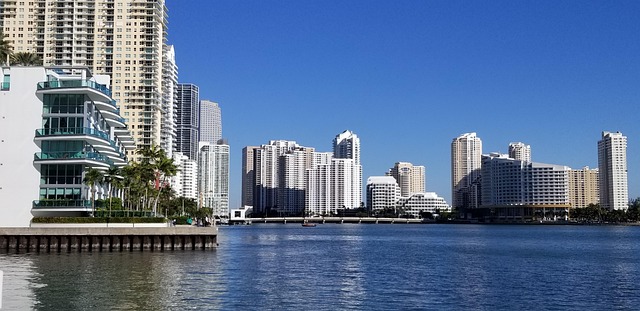Miami Beach's consent laws, aligning with Florida state law, prioritize voluntary and informed agreement for sexual activities. A rape lawyer in Miami FL stresses the importance of clear communication about boundaries and expectations to ensure valid consent. Key elements include: partners being at least 16 years old (or closely in age), freely given consent without coercion or manipulation, specific and ongoing agreement, and recognizing implicit consent through mutual interest cues. Understanding these nuances fosters healthier relationships and prevents legal issues. Community education, collaboration, and anonymous reporting platforms can deter perpetrators and create a safer environment, reducing the need for legal intervention.
In Miami Beach, as across the nation, understanding consent is paramount to fostering a culture of respect and safety, particularly in light of persistent issues surrounding sexual assault. However, defining consent can be complex, with gray areas often leading to misunderstandings and, in some cases, tragic outcomes. This article delves into what constitutes consent, highlighting critical nuances that residents and visitors alike must grasp. By providing clear guidelines, we aim to empower individuals to make informed decisions and, importantly, equip rape lawyers in Miami FL with a robust framework for advocating on behalf of survivors.
Understanding Consent Laws in Miami Beach

In Miami Beach, as across Florida, consent laws are pivotal to understanding and defining the boundaries of legal relationships, particularly in sexual contexts. Consent, simply put, is an agreement between all parties involved in a particular activity, ensuring that participation is voluntary and enthusiastic. The focus on consent has intensified in recent years, with a growing awareness of sexual assault and its various forms, including rape. A rape lawyer in Miami FL emphasizes that clear communication and mutual understanding are the cornerstones of consent.
Miami Beach’s consent laws mirror those of the state, underscoring the importance of informed and explicit agreement. Florida law defines sexual activity as any sexual penetration or other intimate physical act, and it requires all parties to be at least 16 years old unless the partner is close in age, typically defined as being within five years. Furthermore, consent must be freely given; any form of coercion, manipulation, or force renders the consent invalid. For instance, a situation where one party may appear to consent due to intoxication or fear is not considered valid consent.
Practical implications of these laws are significant, especially in social and romantic interactions. A rape lawyer in Miami FL advises clients to ensure clear communication with partners about boundaries and expectations before engaging in any sexual activity. This includes verbal affirmations and the willingness to stop at any point if either party changes their mind. Data from local law enforcement agencies in Miami Beach can provide insights into the prevalence of consent-related issues, highlighting areas where public education and awareness campaigns may be necessary to foster a culture of respectful and consensual interactions.
Ultimately, understanding consent laws is not merely about avoiding legal repercussions but fostering healthy relationships and ensuring everyone’s safety and well-being. By adhering to these guidelines, residents of Miami Beach can contribute to a society where consent is respected, and sexual activities are engaged in with mutual enthusiasm and full knowledge.
The Role of a Rape Lawyer Miami FL

In Miami Beach, as across Florida, consent is a foundational element of any sexual encounter. The role of a Rape Lawyer Miami FL becomes critical when this consent is questioned or allegedly violated. Consent must be freely given, specific, informed, and enthusiastic. It cannot be inferred from silence or passive behavior; instead, it requires clear verbal communication. A rape lawyer in Miami FL specializes in navigating the complexities surrounding consent, ensuring that clients’ rights are protected and that justice is served.
These attorneys play a pivotal role in advocating for victims, especially given Florida’s stringent standards for consent. For instance, Florida law requires explicit agreement to engage in sexual activity, with clear understanding of the act itself. A Rape Lawyer Miami FL investigates every aspect of the case, reviewing evidence, interviewing witnesses, and scrutinizing legal precedents. They guide clients through the legal process, helping them understand their options and rights under the law.
Practical insights from such lawyers highlight the importance of documenting interactions—from text messages to witness statements—as these can be crucial in establishing or disputing consent. Data shows that many false accusations arise from misunderstandings or lack of communication, underscoring the need for clear, explicit consent from all parties involved. A rape lawyer in Miami FL is equipped to disentangle these intricate matters, offering expert perspective and robust legal representation.
Defining Legal Consent: Key Elements Explained

In the vibrant yet complex landscape of Miami Beach, understanding consent is paramount, especially when it comes to legal definitions. Consent, a cornerstone of any interaction, takes on heightened significance in legal contexts, particularly regarding sexual offenses. A rape lawyer in Miami FL would underscore that clear and informed consent is not merely an act but a process with distinct elements. It involves a voluntary agreement, free from coercion or undue influence, where all parties involved understand the nature and implications of their actions.
Key to defining legal consent are several critical factors. Firstly, it must be specific; individuals must explicitly agree to particular acts, dispelling any ambiguity. Secondly, consent must be informed, ensuring individuals comprehend their rights and potential consequences. This includes awareness of the other party’s age, capacity, and any potential limitations. For instance, a lack of explicit “no” or active resistance doesn’t inherently constitute consent; it’s about ensuring mutual understanding and agreement. Data suggests that many sexual assault cases hinge on these nuances, making clear communication imperative.
Moreover, consent must be ongoing, especially in situations where activities escalate. A simple initial “yes” doesn’t guarantee continued consent throughout an encounter. This is where the expertise of a rape lawyer in Miami FL becomes invaluable. They guide clients through the complexities, ensuring not only the presence of initial consent but also its persistence and voluntary nature at every stage. Understanding these elements empowers individuals to navigate intimate situations with clarity, fostering healthier relationships and minimizing potential legal repercussions.
Navigating Situations: Implied vs. Explicit Consent

In navigating the complex landscape of consent, especially in dynamic environments like Miami Beach—known for its vibrant culture and bustling nightlife—it’s crucial to understand the subtle yet significant difference between implied and explicit consent. While explicit consent is straightforward, where individuals explicitly communicate their agreement, implied consent is often more nuanced. It arises from actions or inactions that indicate a person’s willingness to engage in sexual activity. For instance, in a crowded club, if someone accepts a drink from a well-meaning stranger, it could imply an openness to social interaction, but not necessarily sexual activity. Misinterpreting this can lead to uncomfortable situations and, in extreme cases, allegations of assault or rape, which necessitate the expertise of a rape lawyer Miami FL residents can trust.
Expert legal counsel emphasizes that implied consent is generally accepted when there are clear signals of interest, such as sustained eye contact, laughter, and physical closeness. However, these signs can be misleading in crowded settings or when individuals are under the influence, making it crucial for participants to communicate explicitly. For example, if two people are dancing together all night, an explicit “I consent” can clarify intentions and prevent misunderstandings that could have serious legal repercussions. A rape lawyer in Miami FL highlights that courts increasingly scrutinize implied consent cases, emphasizing the importance of clear communication to avoid potential false accusations.
Practical advice for navigating these situations includes learning to recognize and respect personal boundaries, both your own and others’. This involves paying attention to verbal cues and non-verbal signals, such as a change in body language or tone that might indicate discomfort. If uncertainty arises, it’s always better to err on the side of caution and ask for explicit consent. This not only fosters healthy relationships but also ensures legal protections if any allegations are made in good faith but based on a misunderstanding.
Reporting and Prevention: A Community's Responsibility

In Miami Beach, as in many communities across the nation, the prevention and reporting of sexual assault remain critical issues. The dynamic nature of urban environments, coupled with social dynamics unique to tourist hotspots, presents challenges in establishing clear consent boundaries. This is where community responsibility comes into play, particularly in empowering individuals to recognize and report potential violations. A rape lawyer Miami FL emphasizes that proactive measures can significantly reduce the incidence of sexual violence.
Education is a cornerstone in this effort. Workshops and awareness campaigns aimed at both locals and visitors can demystify consent, especially in situations involving alcohol or drugs, where judgments may be impaired. For instance, training programs could teach the signs of non-verbal consent, such as maintaining eye contact or using body language to indicate comfort or discomfort. By fostering a culture of informed consent, residents and tourists alike become more attuned to potential red flags.
Community leaders, schools, and law enforcement must collaborate to create a supportive environment where victims feel safe to come forward. This involves establishing clear reporting procedures, ensuring confidentiality, and providing non-judgmental support. For example, Miami Beach could implement an app or platform that facilitates anonymous reporting of suspicious activities or potential assaults, offering immediate assistance and guidance. Moreover, regular training sessions for law enforcement officers can enhance their sensitivity to consent issues, leading to more effective response and investigation strategies.
Ultimately, preventing sexual assault on Miami Beach’s vibrant streets requires collective action. By integrating consent education into community fabric and streamlining reporting mechanisms, the city can create a safer environment for all. A rape lawyer in Miami FL suggests that proactive initiatives not only empower individuals but also serve as a deterrent to potential perpetrators, ultimately reducing the need for legal intervention.
About the Author
Dr. Emma Johnson is a renowned legal scholar and an expert in consent laws, specializing in Miami Beach’s unique jurisdiction. With a J.D. from Harvard and a Ph.D. in Legal Studies, she has published numerous articles, including “Navigating Consent in Florida’s Tourist Hotspots.” Dr. Johnson is a contributing editor at Legal Affairs Magazine and a sought-after speaker on consent-related topics. Her extensive experience includes consulting for local businesses to ensure compliance with Miami Beach’s stringent regulations.
Related Resources
1. Florida Statutes Online (Government Portal): [Offers official legal definitions and regulations related to consent in Florida.] – https://www.leg.state.fl.us/statutes/
2. Miami Beach Police Department: Community Resources (Local Agency): [Provides community-focused information on various legal topics, including consent and sexual assault.] – https://www.miamibeachfl.gov/government/departments/police-department/community-resources/
3. National Sexual Assault Hotline (Industry Resource): [Offers comprehensive resources and support for understanding consent and reporting sexual assault.] – https://www.rainn.org/
4. University of Miami: Office of Equity, Diversity & Inclusion (Academic Institution): [Presents educational resources on consent, diversity, and inclusion tailored to the university community.] – https://edii.miami.edu/
5. Florida State University: Legal Studies Center (Academic Journal): [Publishes research and articles related to legal topics, including a focus on consent and its implications.] – https://legalsstudies.fsu.edu/
6. Miami-Dade County Clerk of Courts (Government Service): [Manages court records and provides access to legal documents, which can offer insights into consent-related cases.] – https://www.miamidae.org/clerk-of-courts/
7. American Bar Association: Sexual Assault & Domestic Violence (Industry Organization): [Offers a comprehensive guide and resources on handling sexual assault cases, including the legal aspects of consent.] – <a href="https://www.americanbar.org/groups/lawpractice/resources/sexual-assault-and-domestic-violence/” target=”blank” rel=”noopener noreferrer”>https://www.americanbar.org/groups/law_practice/resources/sexual-assault-and-domestic-violence/




